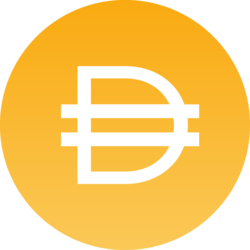Bitcoin: The Digital Gold Standard
Introduction
In recent years, Bitcoin has emerged as a revolutionary force in the world of finance and technology. Often referred to as digital gold, Bitcoin has captured the imagination of investors, technologists, and financial experts alike. This decentralized digital currency has disrupted traditional financial systems, challenging the status quo and redefining the concept of money. In this blog post, we will explore why Bitcoin is often referred to as the digital gold standard and how it has gained recognition as a store of value in the modern era.
Bitcoin and Gold: A Comparative Analysis
Gold has been considered a store of value for centuries, with its scarcity and intrinsic properties making it an ideal medium of exchange. Similarly, Bitcoin shares some key characteristics with gold that have earned it the moniker "digital gold."
1. Scarcity: Just like gold, Bitcoin has a limited supply. There will only ever be 21 million bitcoins in existence, making it a finite resource. This scarcity ensures that Bitcoin cannot be devalued by arbitrary inflation, making it an attractive long-term investment.
2. Decentralization: Both gold and Bitcoin exist outside traditional financial systems. Gold is a physical asset that can be held and transferred without the need for intermediaries. Similarly, Bitcoin operates on a decentralized network called the blockchain, which eliminates the need for intermediaries like banks or governments to facilitate transactions.
3. Durability and Portability: Gold is highly durable and can be stored and transported without losing its value. Bitcoin, being a digital asset, can be easily stored, transferred, and accessed through digital wallets. This portability allows for seamless global transactions, making Bitcoin an efficient medium of exchange.
4. Store of Value: Gold has served as a store of value for centuries, with its price often rising during times of economic uncertainty. Bitcoin, despite its relatively short existence, has demonstrated similar characteristics. During periods of economic instability or inflation, investors have turned to Bitcoin as a hedge against traditional financial systems.
Bitcoin's Rise as the Digital Gold Standard
Bitcoin's journey to becoming the digital gold standard has been driven by several factors.
1. Trust and Security: Bitcoin's underlying technology, blockchain, provides a transparent and secure platform for transactions. The use of cryptographic techniques ensures the integrity of the network, making it highly resistant to fraud and hacking attempts. This trust and security have played a significant role in driving adoption and establishing Bitcoin as a reliable store of value.
2. Institutional Adoption: Over the past few years, institutional investors and corporations have started to recognize Bitcoin's potential as a hedge against inflation and a diversification tool for investment portfolios. Major financial institutions, including banks and asset management firms, have begun offering Bitcoin-related services, further validating its status as a digital gold standard.
3. Global Accessibility: Bitcoin's borderless nature allows for easy access and transfer regardless of geographical boundaries. This accessibility has made Bitcoin an attractive option for individuals living in countries with unstable economies or limited access to traditional financial services. Bitcoin's ability to provide financial inclusion has contributed to its rise in popularity.
4. Store of Value Narrative: Bitcoin's decentralized nature and limited supply have fueled the narrative that it is a store of value akin to gold. As more people embrace this narrative, the demand for Bitcoin increases, further driving its value and reinforcing its position as a digital gold standard.
































































































